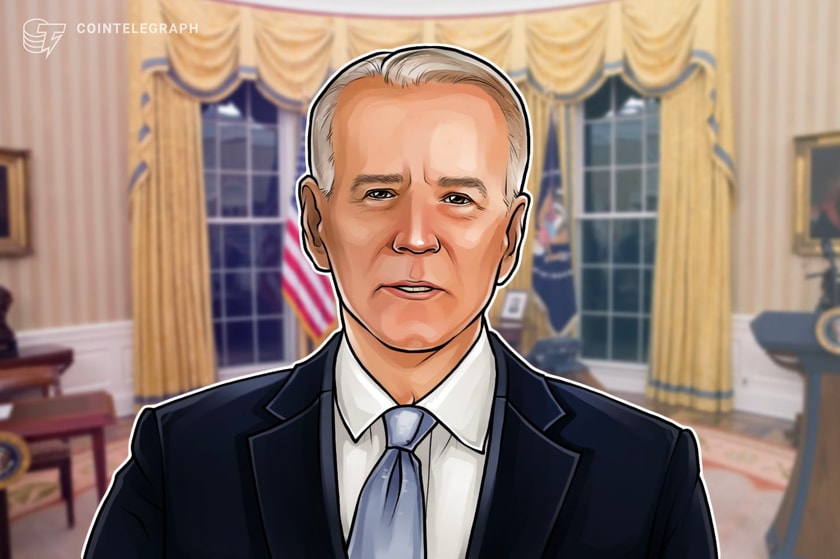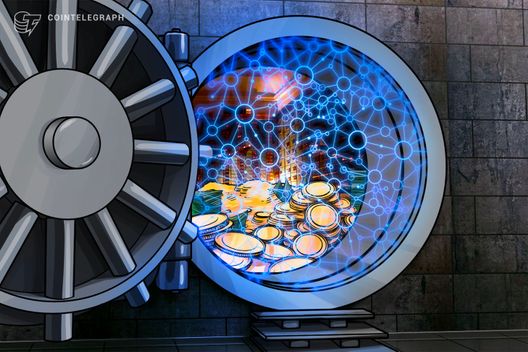‘We don’t like our money’: The story of the CFA and Bitcoin in Africa
Nearly 150 million people use the franc of the Financial Community of Africa (CFA) on a daily basis, from Senegal in the extreme west to Gabon in the center of the continent.
Used in 14 countries, the CFA franc is pegged to the euro, printed in France and its monetary policy is controlled by Western powers. As Fodé Diop, a Bitcoin (BTC) Lightning developer hailing from Senegal details, “The IMF and the French government still control the currency.”
While the official peg to the euro is 1 euro to 655.96 CFA francs, its purchasing power has eroded over time. In 1994, the World Bank devalued the CFA franc against the French franc from 1:50 to 1:100. That year, West Africans woke up to realize the value of their life savings had been slashed in half.

Gloire, the founder of Kiveclair, a Bitcoin Beach-inspired refugee project in the Congo, told Cointelegraph that the CFA “makes whole countries dependent,” and “It is usually the poorest who suffer.” He explained the situation in 1994:
“The most striking example is that of 1994 when France and a privileged few decided to devalue the CFA Franc. There is no guarantee that such a thing will not happen again, especially since the global economy is threatened.”
Prior to the creation of Bitcoin, West Africans could store their money in euros, U.S. dollars or traditional stores of value: real estate and commodities. For everyday people, however, those options are not readily available.
Mama Bitcoin, the first retailer to accept cryptocurrency in Senegal, told Cointelegraph that the CFA is “disempowering.” She suggests that Bitcoin could provide a way out.
“Our money belongs to France, the CFA is made in France and is — for want of a better word, colonial money. Bitcoin, however, Bitcoin belongs to everyone.”
With the arrival of Bitcoin and cryptocurrencies, indeed, there is now a viable alternative. Gloire suggests that “Bitcoin can help the countries of the CFA Zone to free themselves from France to finally turn the dark page of colonization.”
In Senegal, Mouhammad Dieng, co-founder of SenBlock, a nonprofit organization for crypto promotion and adoption, told Cointelegraph that he doesn’t “like the CFA, because its monetary policy does not allow us to develop. Bitcoin is a less risky alternative to make the transition to an African digital currency.”
Interestingly enough, the hope to replace the CFA is not restricted to grassroots cryptocurrency advocates. Governments of West African countries have been vocal in their efforts to improve the CFA and develop some autonomy.
With the current monetary policy, CFA zone countries are obliged to send more money to France than other countries due to colonial ties — there is zero sovereignty over the currency.

A new currency called the ECO was flouted as a replacement for the CFA. However, it would still be pegged to the euro and biased to France. Concerning digital currencies — which Dieng mentions — the e-Naira, the digital version of neighboring Nigeria’s currency, has influenced the view of the CFA governments with regard to digital currencies and CBDCs. However, an e-ECO or e-CFA has not yet been planned.
Notwithstanding, the opportunity for a stronger currency in the CFA African territories is vast. The GDP of the CFA region is roughly $170 billion and covers 14 independent countries. It’s a huge region with tremendous untapped resources, particularly agriculture and minerals.
Pape Alioune, a software engineer who founded Shintsha, a cryptocurrency exchange that allows payments via mobile money, told Cointelegraph: “‘What country can develop without its own money or, better yet, a neutral money?”
The Senegalese–South African team behind Shintsha — which will soon rebrand to Mole App — has created an innovative way of addressing the low banking levels in Africa. The exchange hopes to onboard more and more Africans into Bitcoin and crypto through mobile money, an Africa-centric solution.
Mobile money, originally derived from a Kenyan invention called M-Pesa, allows sim cardholders to pay each other with credit. It is incredibly popular in Subsaharan Africa, from Senegal to Somalia to Malawi. Orange money is one of the most popular outlets, although Free Mobile and Wave also exist.

Alioune estimates that “more than 80% of the adult population uses mobile money in Senegal, and it’s similar in other countries that use the CFA.” Africans use the tech the same way Northern Europeans use contactless payments — it’s become a reflex, part of the daily routine.
While there is a sense of optimism in West Africa with regards to the future of cryptocurrency and more routes to purchasing crypto, “Education remains the most significant hurdle to overcome.” That’s according to Nourou, the founder of Bitcoin Senegal who is on a mission to facilitate Bitcoin adoption in his home country.
For Nourou, given that literacy rates in his home nation are just 50%, he speaks with business owners, entrepreneurs and educated members of the community. “Most people in West Africa have at least heard of Bitcoin. It’s a question of getting through to the right people and spreading awareness,” he told Cointelegraph.
Nourou agrees with Gloire in that it’s not just about Bitcoin, it’s “absolutely necessary to educate people about money.” Gloire adds that while learning about money is key, people must “understand that it is possible to decide one‘s destiny without asking permission.”
He brings up the example of smartphones which are “penetrating Africa at a good pace,” to illustrate that Africa can pick up new technologies and run with them. As much as 46% of the Subsaharan population in Africa has a smartphone and, as evidenced, mobile money is booming.
“The biggest challenge is to teach young people that a simple telephone and an internet connection are effective weapons to protect themselves from the CFA by adopting Bitcoin.”
For Idrissa Seck, a Bitcoin enthusiast and a payment agent at French bank Société Générale, understanding money is the key to unlocking an understanding of Bitcoin. “In order to understand and ultimately fall in love with Bitcoin, you have to understand money and the current financial system,” he told Cointelegraph.

Dieng repeats, “education, education, education,” adding that you must spend “at least 50 hours learning before investing in crypto.”
With regard to the future of Bitcoin and cryptocurrencies in the CFA zone, Gloire takes inspiration from the “Salvadorian experience,” which is “going quite well.” The first country to adopt Bitcoin as legal tender, El Salvador’s hotly awaited Bitcoin bonds are imminent. For Gloire:
“Several other countries could certainly include Bitcoin among the means of raising funds without going through institutions with rarely positive interests for the abundance of populations.”
Africa has all the ingredients to make meaningful use of cryptocurrencies, according to Mama Bitcoin. It’s on a path to greater freedoms. It comes back to the notion that “Bitcoin belongs to everyone.”
Nourou of Bitcoin Senegal sums up Bitcoin and Africa’s relationship best. When asked if the creator of Bitcoin, Satoshi Nakomoto could be an African, he replies:
“What do you mean? Satoshi is African.”








